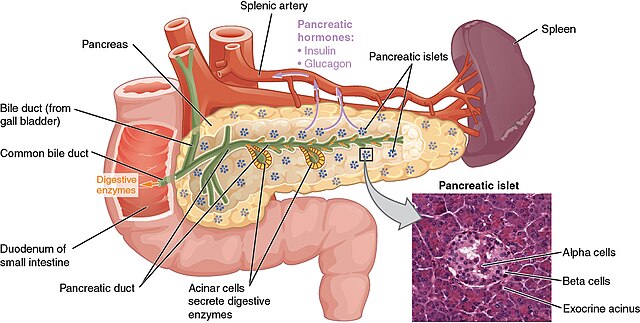CALL TODAY 646-846-1136 | EMAIL
Pancreas Surgery: Management of Pancreatic Diseases through Surgery
When is pancreas surgery necessary? The pancreas is a vital organ located behind the stomach, responsible for producing digestive enzymes and regulating blood sugar through hormone production. When pancreatic diseases occur, they can have severe consequences on overall health. For conditions that cannot be managed through medication or lifestyle changes, pancreas surgery often becomes a necessary treatment option.

In this comprehensive guide, we’ll explore common pancreatic diseases that may require surgery, the different types of pancreatic surgeries, the latest advancements in surgical techniques, and what patients can expect during recovery.
Common Pancreatic Diseases Requiring Surgery
Several conditions affecting the pancreas may necessitate surgical intervention. Here are some of the most common pancreatic diseases that often require surgical management:
1. Pancreatic Cancer
Pancreatic cancer is one of the most serious forms of cancer, often diagnosed at an advanced stage due to its subtle symptoms. The most common type is pancreatic ductal adenocarcinoma, which typically originates in the ducts of the pancreas. Surgery is a primary treatment for pancreatic cancer, especially if it’s localized and detected early.
2. Pancreatitis
Pancreatitis is the inflammation of the pancreas, which can be acute or chronic. Acute pancreatitis is usually a sudden condition that may resolve with conservative treatment, while chronic pancreatitis is a long-term, progressive inflammation often due to repeated bouts of acute pancreatitis, gallstones, or alcohol use. Surgery may be recommended for chronic pancreatitis when there’s persistent pain, blockage, or other complications.
3. Pancreatic Cysts and Neoplasms
Pancreatic cysts and benign neoplasms are growths in the pancreas. While many pancreatic cysts are benign, some have the potential to become cancerous over time. Surgery may be required to remove cysts if they are symptomatic, large, or carry a risk of malignancy.
4. Neuroendocrine Tumors
Pancreatic neuroendocrine tumors (NETs) are a rare type of tumor that originates in the hormone-producing cells of the pancreas. These tumors can be either benign or malignant and may produce symptoms related to excess hormone production. Surgery is often the first line of treatment, especially if the tumor is localized and can be safely removed.
Types of Pancreatic Surgery
The type of surgery performed on the pancreas depends on the specific disease, its location, and the stage at which it is diagnosed. Here are some of the most common pancreatic surgical procedures:
1. Whipple Procedure (Pancreaticoduodenectomy)
The Whipple procedure, or pancreaticoduodenectomy, is the most common surgery for pancreatic cancer located in the head of the pancreas. During this complex procedure, the surgeon removes the head of the pancreas, part of the small intestine (duodenum), the gallbladder, and sometimes part of the stomach. The remaining organs are then reconnected to allow for normal digestion. Although it is a major surgery, the Whipple procedure is often the best option for treating cancers in the head of the pancreas.
2. Distal Pancreatectomy
In a distal pancreatectomy, the tail (and sometimes part of the body) of the pancreas is removed, leaving the head intact. This procedure is commonly performed for tumors or cysts located in the tail of the pancreas. In some cases, the spleen may also be removed if it is affected or if it will facilitate a safer procedure.
3. Total Pancreatectomy
A total pancreatectomy involves the removal of the entire pancreas. This procedure is usually reserved for cases where cancer or disease affects the entire pancreas and cannot be treated by removing only part of the organ. After a total pancreatectomy, the patient will require lifelong enzyme replacement and insulin therapy, as the body will no longer be able to produce insulin or digestive enzymes.
4. Enucleation
Enucleation is a less invasive procedure often used to remove small, benign pancreatic neuroendocrine tumors. During enucleation, only the tumor is removed, preserving as much of the healthy pancreas tissue as possible. This procedure is ideal for small, well-defined tumors that do not invade nearby structures.

Advances in Minimally Invasive Pancreatic Surgery
Recent advancements in surgical technology have made minimally invasive approaches more accessible and effective for pancreatic surgery. Minimally invasive techniques, including **laparoscopic** and **robotic-assisted surgery**, offer patients significant benefits compared to traditional open surgery.
- Laparoscopic Surgery: This minimally invasive approach uses small incisions and a laparoscope (a thin tube with a camera) to guide the surgery. Surgeons can perform complex pancreatic procedures with greater precision and minimal trauma to surrounding tissues.
- Robotic-Assisted Surgery: Robotic-assisted surgery enhances the surgeon’s dexterity and control, allowing for more precise movements in delicate areas. This approach is especially beneficial for complex procedures, as it reduces the likelihood of complications and often results in faster recovery times.
The benefits of minimally invasive pancreatic surgery include:
- Smaller incisions and less scarring
- Reduced post-operative pain
- Shorter hospital stays and faster recovery times
- Lower risk of infection and complications
Recovery After Pancreatic Surgery
Recovery from pancreatic surgery depends on the type of procedure performed and the patient’s overall health. Here’s what most patients can expect during recovery:
- Hospital Stay: Pancreatic surgeries are major procedures, often requiring a hospital stay ranging from a few days to two weeks, depending on the complexity of the surgery and any complications.
- Pain Management: Pain is common after pancreatic surgery, especially with open procedures. Pain management techniques include medications and, in some cases, epidural or nerve block anesthesia for the first few days.
- Dietary Adjustments: After surgery, patients will need to follow a special diet to allow the pancreas to heal. This usually starts with a liquid diet, followed by soft foods. Patients may also require enzyme supplements to aid in digestion, especially if a large part of the pancreas was removed.
- Lifelong Management: For patients who undergo a total pancreatectomy, lifelong enzyme replacement and insulin therapy are necessary. Even with partial removal, patients may need ongoing management to control blood sugar levels and support digestion.
Success Stories and Improvements in Quality of Life
Pancreatic surgery can be life-changing for patients dealing with chronic pain, cancer, or other debilitating symptoms due to pancreatic diseases. Success stories often highlight patients who have regained control of their health, with significantly improved quality of life. Some individuals with pancreatic cancer have been able to achieve remission through early intervention and surgery, while others suffering from chronic pancreatitis have been able to live pain-free after successful surgical treatment.
The improvements in minimally invasive techniques and post-operative care have increased the success rates of pancreatic surgeries, allowing patients to enjoy better outcomes and faster recovery times.
When to Consider Pancreas Surgery
Patients diagnosed with serious pancreatic conditions should consider surgery as a treatment option if recommended by their healthcare provider. Early intervention is key for the best outcomes, particularly in cases of pancreatic cancer or neuroendocrine tumors. Discussing the benefits, risks, and long-term impacts of surgery with a general surgeon specializing in pancreatic diseases can help you make an informed decision about your treatment plan.
If you or a loved one is facing a pancreatic disorder that may require surgery, consulting with a team of skilled surgeons can make all the difference in your recovery journey.
Contact Lenox Hill Minimally Invasive Surgery today to schedule a consultation and learn more about the latest advancements in pancreatic surgery and how our experienced team can help you on the path to restored health.
Contact Information
LENOX HILL MINIMALLY INVASIVE SURGERY
117 E 77th Street
New York, NY 10075
646-846-1136
admin@lenoxmis.com
Visit our website for more information: https://lenoxhillminimallyinvasivesurgery.com/

